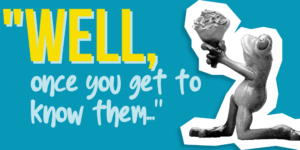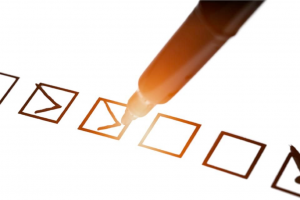A friend of mine that enjoys challenging me with writing topics sent me this, and I’ve been mulling it over a while.
I have a friend. When he starts dating someone, they are literally engaged to be married by the third date. Yet he has never been married, these relationships always fall apart before that happens. His friends point out that perhaps he should take things slower; he is unmoved, and says he has to be all in.
I don’t know him to be kinky, but in kink terms he has a fetish for falling in love. To make that work, clearly he has to tell himself that things will be different this time every time he starts a relationship. Basically he has to lie to himself. People lie to themselves all the time, so that in itself isn’t so shocking. The problem of course is by extension he has to lie to his partner.
My question for you is this. How many times can he have an engagement fall apart before it becomes unethical to put another person in this situation? How many times can a person get divorced before it becomes unethical to promise to be with someone forever? How many times can you cheat on someone before it becomes unethical to make commitments of monogamy?
I don’t know the answer to those questions. Believing things can be different is the definition of hope. Believing you can do the same thing and get different results is the definition of stupidity.
I had to think on this for while.
Because ethics in this case are dependent on whether the person in question (repeating patterns over and over) is self-aware enough to realize they are heading down the same path again.
Do they sincerely hope and quite possibly believe that THIS TIME will be different?
And if not, the ethics can be quite convoluted.
It’s my position that as long as this person is 100% honest (and that means honest as they can be, considering the force of their denial) with their new partners, they are being ethical.
Thing is, no matter how ethical they are, people can be hurt.
Which is why I suggest that everyone take their time and get to know people, even if it feels fuckballs amazing right from the get go.
Ask questions about previous relationships.
Not because you think your relationship will be the same. All relationships have the potential to be unique and different.
But for two reasons:
- To spot patterns from previous relationships when they start to happen with you.
- To learn how they have processed and grown from the previous relationships in how they talk about them and in how they interact with you.
And maybe one more reason:
- To determine whether the person who has these sorts of issues is one you want to continue building a relationship with.
That last one may get me some flak, and I’m ready for it.
EVERYONE has a right to choose who they want to engage with, and that includes people with specific past relationship issue that they may have been hurt by before, or that they just don’t feel they are compatible with.
I always think it’s a good idea to ask these questions BEFORE you have gotten in too deep.
But that’s me.
And I could be wrong.
On all of this.
What do you think?
Do you think that anyone can be ethically held accountable for things they may not even be aware of themselves? For how their relationship patterns play out (assuming no actual abuse), or the things they have denied as issues?
I bet you can come up with examples that would be “yeses.”
I bet you can also see where there are many examples where the answer is a resounding “no.”
I look forward to your thoughts.










